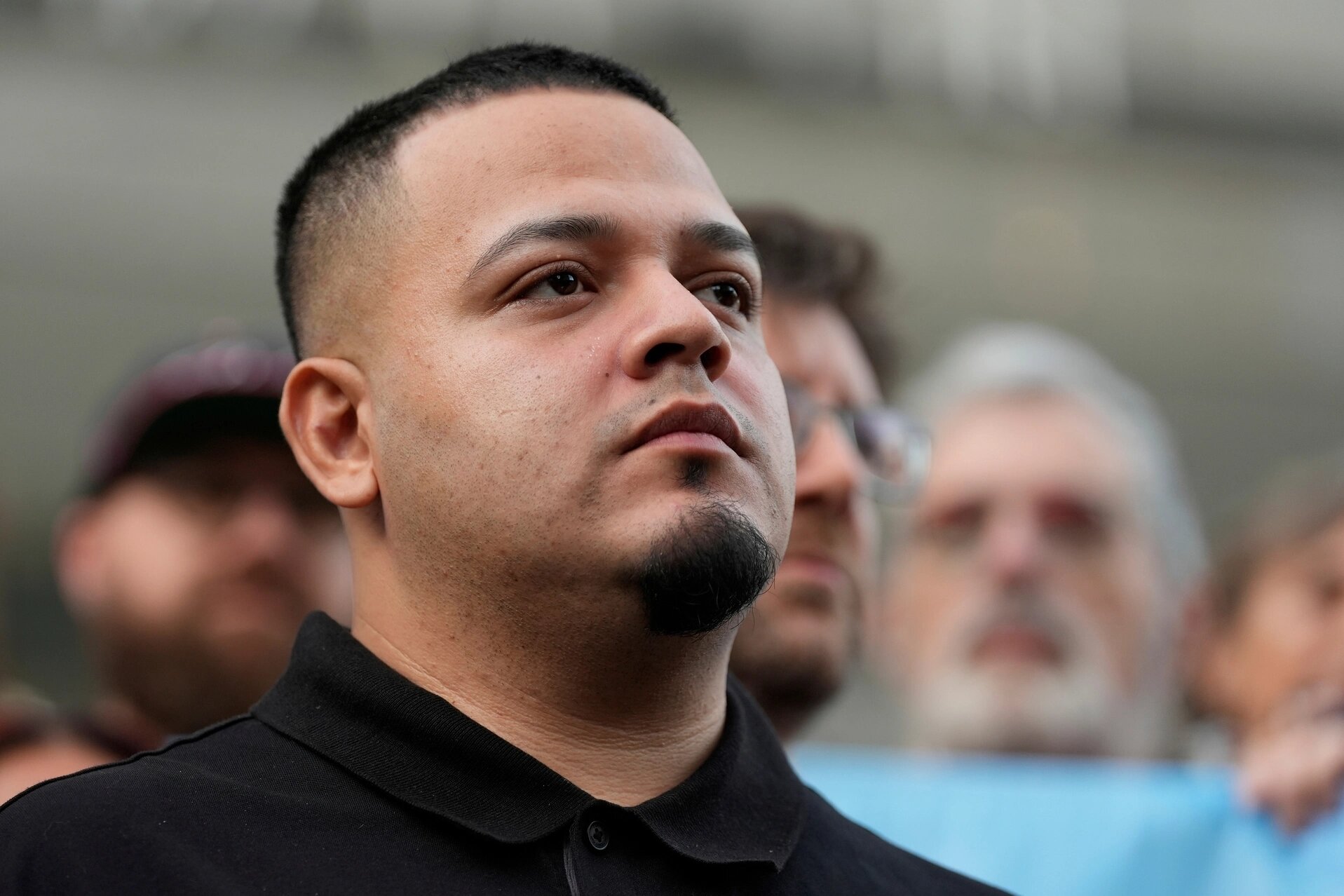U.S. District Judge Waverly Crenshaw ordered the administration to warn every DOJ and DHS employee against improper statements regarding Abrego, who’s facing smuggling charges.

A federal judge took Attorney General Pam Bondi and Department of Homeland Security Secretary Kristi Noem to task Monday for their incendiary, out-of-court statements about Kilmar Abrego Garcia, the Salvadoran native who was illegally deported from the U.S. to his home country before being brought back to face immigrant-smuggling charges.
U.S. District Court Judge Waverly Crenshaw ruled the Trump Cabinet members violated a local court rule limiting comments by government officials relating to an ongoing criminal case. Crenshaw stopped short of issuing a gag order against future comments about Abrego. However, the judge ordered prosecutors to notify every employee at DOJ and DHS about the existing rule restricting public statements about pending cases.
“Government employees have made extrajudicial statements that are troubling, especially where many of them are exaggerated if not simply inaccurate,” wrote Crenshaw, an Obama appointee based in Nashville. “These statements made allegations regarding Abrego’s ‘character or reputation’ and expressed government officials’ views on Abrego’s ‘guilt or innocence.’”
Crenshaw said Noem violated the rule by declaring that Abrego is a “MS-13 gang member, human trafficker, serial domestic abuser, and child predator.” And the judge said Bondi ran afoul of the rule by stating that Abrego played “a significant role in an alien smuggling ring … [that] this was his full-time job, not a contractor … [that] [h]e was a smuggler of humans and children and women … [and that] [h]e made over 100 trips.”
Although many of the statements were drawn from public court filings, the judge said they violated the court’s rule by opining on evidence in the case and future violations could result in sanctions which he did not specify.
The ruling adds momentum to Abrego’s contention that top Trump administration officials have targeted him unfairly in the aftermath of his illegal deportation to El Salvador earlier this year, which led to a cascade of legal problems for the White House, DOJ and DHS. Abrego was whisked onto an airplane in March and sent to El Salvador despite a 2019 court order that found he was likely to be targeted for gang violence there.
The administration resisted numerous court rulings requiring officials to facilitate Abrego’s return from El Salvador earlier this year, only agreeing to bring him back in June after a grand jury in Tennessee charged him with human smuggling.
Crenshaw, who also dinged defense lawyers for publicly disclosing details about plea negotiations, said he was confident that Abrego would receive a fair trial because media coverage of the case appeared to be subsiding, both nationally and in Tennessee. He added that efforts to screen jurors for potential bias would likely identify anyone who had been exposed to the potentially prejudicial comments about Abrego.
Crenshaw had previously ordered the U.S. Attorney handling the case, Robert McGuire, and a colleague, Jason Harley, to report to the court on the steps they had taken to make sure DOJ and DHS officials were complying with the rule. The judge complained Monday that McGuire and Harley “side-stepped” his directive.
In a related development Monday, Crenshaw ordered prosecutors to show him copies of various internal government communications related to the case. They include all records that reflect why prosecutors abruptly shifted their stance earlier this year and decided to pursue criminal charges against Abrego in a case stemming from a traffic stop that took place on I-40 near Nashville in 2022.
In addition, Crenshaw ordered the prosecution to turn over all documents about Abrego “drafted” by a former senior federal prosecutor in Nashville, Ben Schrader. He quit the office on the same day Abrego was indicted and reportedly wrote a memo saying a criminal prosecution in the case was unwarranted.
Crenshaw is demanding those records in connection with Abrego’s bid to throw the case out entirely as the product of vindictive prosecution brought in retaliation for the embarrassment he caused the Trump administration amid its mass deportation campaign. The judge said he will look at the documents privately for now, but may decide some or all have to be turned over to Abrego’s defense.
Abrego’s attorneys have also subpoenaed Deputy Attorney General Todd Blanche and other senior DOJ officials to testify at a hearing on the vindictive prosecution claim next week.
Prosecutors have urged Crenshaw to reject Abrego’s demands, saying McGuire was the official who decided to prosecute him and that he was not influenced by the statements or views of other senior Trump administration figures. The government is asking Crenshaw to quash the subpoenas for Blanche and two of his advisers, Aakash Singh and James McHenry.
Earlier Monday, DOJ officials told another judge that the administration now intends to deport Abrego to Liberia and will seek to do so before — and perhaps in lieu of — any trial in his criminal case.
